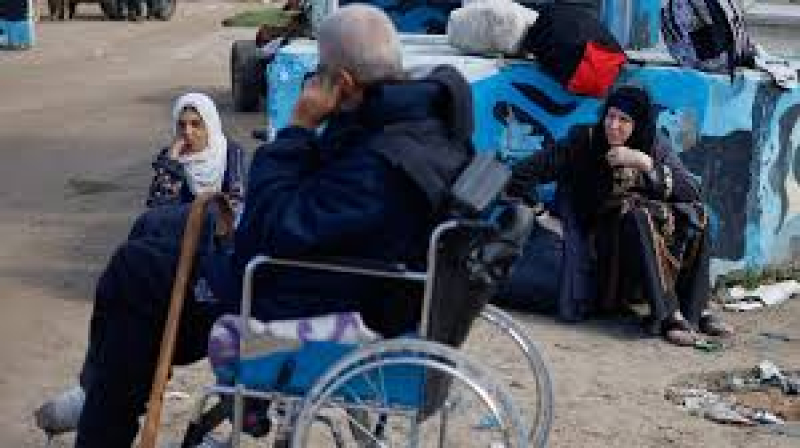- AI Moves Closer To Decoding Human Thoughts |
- UNESCO Calls Iran School Strike Grave Violation |
- Oil Jumps, Asian Stocks Slide On Gulf Tensions |
- Death toll from central Israel strike rises to 5 |
- DSE sinks 138 points on broad sell-off; CSE also tumbles |
WHO says Gaza hospital raided by IDF not functional

The World Health Organization has said Gaza's Nasser hospital has ceased to function following an Israeli raid.
Israel Defense Force (IDF) troops entered the complex on Thursday, saying intelligence indicated hostages taken by Hamas were being held there.
The WHO said it had not been allowed to enter the site to assess the situation.
Israel has been focusing its campaign against Hamas in the southern Gaza city of Khan Younis and has indicated it may continue south to Rafah, reports BBC.
"Nasser hospital in Gaza is not functional anymore, after a week-long siege followed by the ongoing raid," head of the WHO Dr Tedros Adhanom Ghebreyesus, posted on X, formerly Twitter.
"Both yesterday and the day before, the WHO team was not permitted to enter the hospital to assess the conditions of the patients and critical medical needs, despite reaching the hospital compound to deliver fuel alongside partners," he said.
"There are still about 200 patients in the hospital. At least 20 need to be urgently referred to other hospitals to receive health care; medical referral is every patient's right."
The Hamas-run health ministry in Gaza says only four medical staff were left in the hospital trying to care for the remaining patients.
Fighting has raged around the Nasser site for weeks. Israel has repeatedly claimed Hamas is using hospitals, along with schools, as operational bases.
The Israeli military says it has killed about 20 Hamas fighters and seized numerous weapons in the area of the hospital.
"Over the past day, dozens of terrorists were eliminated and large quantities of weapons were seized," the IDF said.
At least 1,200 people were killed during attacks in Israel by Hamas-led gunmen on 7 October last year.
In response, Israel launched a military campaign in the Gaza Strip. More than 28,400 Palestinians, mostly women and children, have been killed and more than 68,000 wounded since the war began, according to the Hamas-run health ministry.
It added that at least 127 Palestinians have been killed and 205 others injured in the past 24 hours.
Despite the continued fighting in Gaza, efforts to broker a ceasefire between Israel and Hamas have been taking place in Cairo in recent days - although Qatari mediators said recent progress was "not very promising".
"The pattern in the last few days [is] not really very promising but, as I always repeat, we will always remain optimistic and will always remain pushing," said Sheik Mohammed, speaking at a meeting of world leaders at the Munich Security Conference on Saturday.
Israeli Prime Minister Benjamin Netanyahu said he sent negotiators following a request from US President Joe Biden, but added they did not return for further discussions because Hamas's demands were "delusional".
Hamas has blamed Israel for a lack of progress in achieving a ceasefire deal.
The group has laid out a series of conditions, including the exchange of hostages for Palestinian prisoners, full withdrawal of Israel's forces and an end to the war after a 135-day pause in fighting, broken into three phases.
Mr Netanyahu has also reiterated the Israeli government is continuing to push its ground invasion of Gaza further south, taking in the area of Rafah, despite international pressure not to do so without first having a plan to evacuate Palestinian civilians who fled there during the early days of the war.
Some 1.5 million people are in Rafah, close to the border with Egypt, after being told by Israeli forces to seek safety there while Hamas targets were attacked in northern, then central, Gaza.

